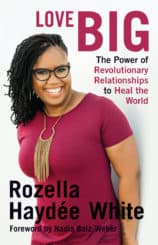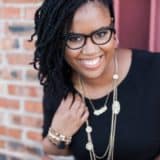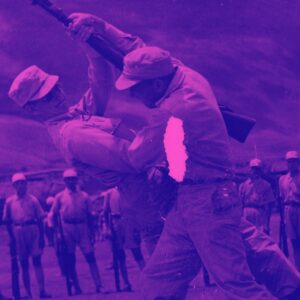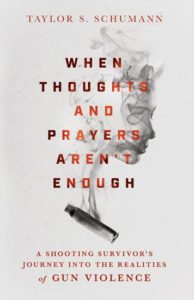
In April of 2016, I found myself at a crossroads. I was working for my denomination at the national headquarters, one year after Dylann Roof murdered nine Black people at Mother Emmanuel AME in Charleston, South Carolina. The massacre of Cynthia Marie Graham Hurd, Susie Jackson, Ethel Lee Lance, Depayne Middleton-Doctor, Clementa C. Pinckney, Tywanza Sanders, Daniel Simmons, Sharonda Coleman-Singleton, and Myra Thompson rocked me to my core. Not only did this tragic event happen on the heels of years of killings of Black and brown people, but it was also perpetrated by a young white man who was affiliated with my denomination.
I was an outspoken leader in my denomination on issues of race and justice. I wrote about the massacre and how I felt being a Black member of a predominantly white denomination. I shared how my heart was broken after years of working toward racial justice and education in my denomination, only to find that we were raising white young adults who had the power and desire to violently kill people who look like me. I was exhausted. I was overwhelmed. I was heartbroken and had no idea what God was calling me to. I knew with every fiber of my being that my current role was no longer the right place for me. The work that I was doing did not reflect my deepest values.
…my heart was broken after years of working toward racial justice and education in my denomination, only to find that we were raising white young adults who had the power and desire to violently kill people who look like me.
Our bodies give us clues all the time. They tell us how we are feeling and what we need. I was paying attention to my body in ways I hadn’t before—to the energy coursing through her and the emotions that were vibrating beneath the surface. During this time, a key thought kept emerging, “Rozella, you are not living out your values and your body is suffering from this dissonance.”
I knew that it was time to make a change. Was the work that I was doing inherently bad or wrong? No. But the work didn’t reflect my identity or my values. When we become comfortable in our bodies, we begin to make decisions that honor who we are and what we value. We begin to live our values out loud, and that’s when we see love in action.
But love is really more of an interactive process. It’s about what we do, not just what we feel. It’s a verb, not a noun.
Do you remember the first time that love shifted in your life from being a noun to a verb? When love shifted from being merely a feeling to impassioned action that required intentional work and commitment? Do you remember when love became something that you’d fight to keep rather than a fleeting desire? Every revolutionary relationship represents this type of love—love as an interactive process. I have deep and abiding feelings of respect and compassion for the people in my life, but our relationships go beyond feelings. They move to a place deep within that is reflective of the love that God models for us in the incarnation. They represent a certain “withness,” the constant presence of a person who has committed to me and our relationship.
Revolutionary relationships lead me to action. I must nurture these relationships and the people I love. I can’t be selfish because these relationships continually pull me out of myself and into the world.
When we embody the love that Jesus modeled, we can’t help but care for those on the margins. We must speak up and speak out against systems and institutions that oppress others. In the embodiment of this love, we recognize that our wellness is directly tied to the wellness of each member of humanity. When one is sick, we all are sick. When one suffers, we all suffer. When one is well, we all are well.
When we embody the love that Jesus modeled, we can’t help but care for those on the margins.
This way of being challenges so many beliefs and ideas about how we should interact. This new world order moves us from being people who act upon others to being people who love one another, live with each other, and recognize our interconnectedness. When I love big, I recognize that the wellness I seek lies in how I love myself and how I love others. It lies in the wholeness of the community. It lies in the justice found when I take up the concerns and struggles of my neighbors. It lies in the original goodness that is reclaimed when we recognize ourselves and others as made in the Divine’s image.
To love big is to recognize the inherent worth of everyone and to realize that the most important work to be done is the work of relationship. This leads to a fundamental shift in worldview so that all experience liberation today, here and now.
When we love big, we reflect the Divine Lover in our acts of creativity, in our work of liberation, and in how we sustain the very creation that God crafted. We love big when we fall in love with ourselves, rouse our minds, repair our hearts, reform our bodies, and restore our hearts. We love big when we engage in revolutionary relationships and seek holistic healing, as individuals and as a community. To love big is to remember the beginning of our story, a story that reflects a God in revolutionary relationship, forming creation to experience and reciprocate love that leads to restoration, healing, and wholeness.
Rozella Haydée White is the author of Love Big: The Power of Revolutionary Relationships to Heal the World, from which this article is excerpted. She is a public theologian, spiritual life coach, leadership consultant, inspirational speaker and writer focused on nurturing life-giving love in this world. Rozella lives in Houston, Texas. Connect with her on Facebook , Twitter or Instagram. Excerpted from Love Big: The Power of Revolutionary Relationships to Heal the World by Rozella Haydée White. Copyright © 2019 Fortress Press, an imprint of 1517 Media. Used by permission.
is the author of Love Big: The Power of Revolutionary Relationships to Heal the World, from which this article is excerpted. She is a public theologian, spiritual life coach, leadership consultant, inspirational speaker and writer focused on nurturing life-giving love in this world. Rozella lives in Houston, Texas. Connect with her on Facebook , Twitter or Instagram. Excerpted from Love Big: The Power of Revolutionary Relationships to Heal the World by Rozella Haydée White. Copyright © 2019 Fortress Press, an imprint of 1517 Media. Used by permission.


